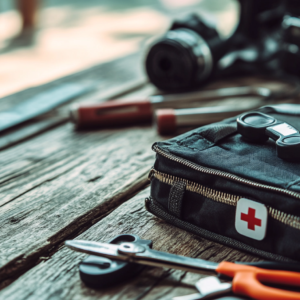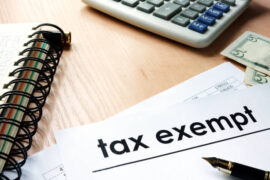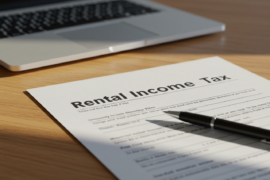This article may contain references to products or services from one or more of our advertisers or partners. We may receive compensation when you click on links to those products or services. Nonetheless, our opinions are our own.
You’re cruising down the road when, out of nowhere, another car swerves into your lane. The collision wasn’t your fault, but the insurance adjuster disagrees. Now, you’re staring at a bill that shouldn’t be yours to pay.
Many people assume their accident policy will automatically shield them from financial fallout, but the reality can be different. The myths surrounding liability can leave you vulnerable when you least expect it.
Knowing the truth about accident policies could mean the difference between walking away stress-free and fighting a costly battle with insurers. Read on to find out more.
- If the Other Driver Apologizes, They’re Automatically at Fault
- You Don’t Need to Call the Police for Minor Accidents
- Your Car Insurance Rates Won’t Be Raised If You’re Not at Fault
- You Can’t Be at Fault If You Were Hit
- Insurance Will Always Cover Medical Bills After an Accident
- Accident Policies: Keep Yourself Protected
- Recommended Reads
If the Other Driver Apologizes, They’re Automatically at Fault
It’s human nature to say “sorry” after an accident, even if you’re not sure who’s responsible. But in the world of insurance and legal claims, an apology doesn’t mean legal liability. In fact, insurers and courts look at evidence, like:
- Traffic laws
- Surveillance footage
- Witness statements
- Expert accident reconstruction
- Weather and road conditions
To determine fault.
In a busy place like Las Vegas, where reckless driving is common, it’s easy to assume that the driver who rear-ended you is always at fault. But what if you suddenly slammed on your brakes without reason? Or your brake lights weren’t working? This is why police reports, dash cams, and eyewitness statements matter more than what someone says in the heat of the moment.
You Don’t Need to Call the Police for Minor Accidents
A lot of drivers think that if the damage is minor, they can just swap insurance info and be on their way. But in some states, failing to report an accident can actually get you into legal trouble. In Nevada, for example, drivers must report any crash involving injury, death, or property damage over $750.
Even if it looks like a simple fender bender, hidden damage to your vehicle (or delayed injuries) could surface later. Having a police report can support your future insurance claims and protect you from the other driver changing their story down the road.
If you ever find yourself in this situation, contacting experienced Las Vegas injury attorneys can be the smartest move.
Your Car Insurance Rates Won’t Be Raised If You’re Not at Fault
It would be nice if insurance companies only raised premiums when you caused an accident, but that’s not always how it works. Some insurers will increase your rates even if you were the victim, especially if you file a claim.
You Can’t Be at Fault If You Were Hit
Getting hit doesn’t automatically mean you’re in the clear. Say you’re making a left turn at an intersection, and another driver speeds through a red light, hitting you. At first glance, they’re at fault. But if investigators find that you hesitated in the middle of the intersection, they could argue you contributed to the accident.
Insurance Will Always Cover Medical Bills After an Accident
A lot of drivers assume that if they have good car insurance, they’re covered for everything. But policies don’t always work that way. Standard liability insurance only covers damage you cause to others, not your own injuries. If you want your medical expenses paid, you need either MedPay or personal injury protection.
Even then, insurance companies often look for ways to minimize payouts. They might argue that your injuries were pre-existing or that your medical treatment wasn’t needed.
Accident Policies: Keep Yourself Protected
Accident liability isn’t always as straightforward as it seems. Not understanding what’s going on can cause major problems if you’re not careful. Use this information, and you’ll have an easier time.

Reviewed and edited by Albert Fang.
See a typo or want to suggest an edit/revision to the content? Use the comment form below for feedback.
At FangWallet, we value editorial integrity and open collaboration in curating quality content for readers to enjoy. Much appreciated for the assist.
Did you like our article and find it insightful? We encourage sharing the article link with family and friends to benefit as well - better yet, sharing on social media. Thank you for the support! 🍉
Article Title: Are You Liable? Common Misconceptions in Accident Policies Explained
https://fangwallet.com/2025/03/15/are-you-liable-common-misconceptions-in-accident-policies-explained/The FangWallet Promise
FangWallet is an editorially independent resource - founded on breaking down challenging financial concepts for anyone to understand since 2014. While we adhere to editorial integrity, note that this post may contain references to products from our partners.
The FangWallet promise is always to have your best interest in mind and be transparent and honest about the financial picture.
Become an Insider
Editorial Disclaimer: The editorial content on this page is not provided by any of the companies mentioned. The opinions expressed here are the author's alone.
The content of this website is for informational purposes only and does not represent investment advice, or an offer or solicitation to buy or sell any security, investment, or product. Investors are encouraged to do their own due diligence, and, if necessary, consult professional advising before making any investment decisions. Investing involves a high degree of risk, and financial losses may occur including the potential loss of principal.
Source Citation References:
+ Inspo
There are no additional citations or references to note for this article at this time.












































